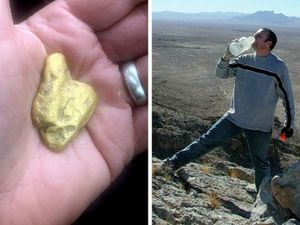Tens of thousands of bees coaxed out of Bridgnorth chimney and into new home
A remarkable sight greeted Rob Davies when he went to remove a colony of bees from inside a chimney in Bridgnorth.
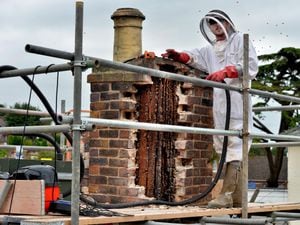
For the tens of thousands of bees had created honeycombs that reached more than 10 feet down into the chimney breast.
Rob, who runs the Shropshire-based PestForce company, spent the day with staff dismantling the chimney to collect the colony and remove it to a hive at his apiary near Much Wenlock.
And by the next morning, the bees were already doing orientation flights, exploring their new surroundings.
Rob is passionate about the importance of bees in nature and works across the UK moving bee colonies from areas where they are problematic.
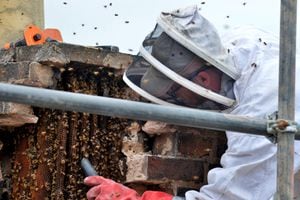
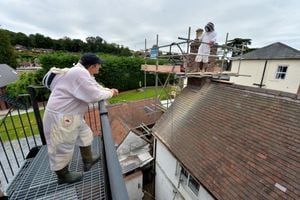
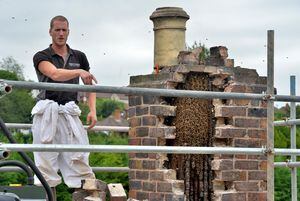
"There has apparently been a colony inside this chimney for about 15 years," he said.
"We were so pleased with how everything went. The bees weren't troublesome at all and when we were on about the third sheet of honeycomb, Matt who works with me noticed that the queen had flown onto the cuff of my suit and so we were able to keep her safe."
"It was getting dark by the time we had got the colony into the hive at home but they settled down well and by next morning they had already started their orientation flights.
"Bees are incredible and it blows my mind every time we do a job like this.
WATCH Rob removing the bees here:
"Most people learn about bees through television programmes but I can step beyond that and can really see their engineering capabilities. Once you trust that your suit is going to protect you it can be really relaxing working with them. Yes, you might get stung once or twice through the veil if it sticks to your face, but as long as you are not allergic to the stings it is something you put up with."
Rob is keen to urge people to ensure they plant wildflowers in their gardens and on patches of land to give the bees enough pollen to create their honey.





